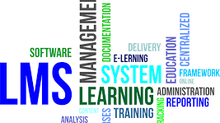Relevance, Applicability and Timing
- Dylan Hedges
- Jan 11, 2017
- 2 min read

The beginning of a new year also marks the beginning of my new career. As I reflect on my own experiences of workplace learning and professional development, I am hyper aware of not only the importance of relevance and applicability, but also how the timing of a training program can impact user motivation and engagement.
As a professional educator for nearly twenty years, I have participated in countless professional development conferences, courses, presentations, trainings and seminars. The most memorable events were relevant and could be immediately applied in my work, whether I was teaching middle school students, writing a new course, or running a department. This is not to say the other events were poorly designed or delivered, but as an adult learner, relevance and applicability were linked to motivation and engagement. And, of course, timing.
Let’s imagine a company required all of its employees to complete training on new program that only management level and above employees used. If you were below management level, your motivation and engagement would be low since there is little relevance or applicability in your current role. Six months later you are promoted to management. The forgetting curve illustrates that on average people forget about 90% of the material as quickly as one week after training, we could say it is a waste of money to require training unless it is immediately relevant and applicable on the job.
Now of course, some types of training don’t fit neatly into the category of immediately relevant and applicable. Consider “soft skills”, such as communicating, conflict resolution, problem solving, working with a difficult co-worker or team, and so on. While the effectiveness of these programs can be more difficult to measure, designers and trainers can increase motivation and engagement by including personal scenarios. People may not be currently experiencing difficulty resolving a conflict at work, however, they may be experiencing difficulty in their personal life and thereby be able to connect to the training in a way that is meaningful. Keeping adult learning principles top of mind while designing workplace learning will contribute to the right training, for the right people, at the right time.






















